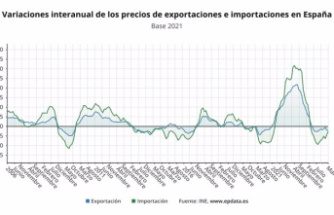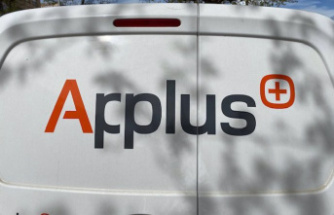MADRID, 7 Ene. (EUROPA PRESS) -
The first plenary session of Congress of 2024 will debate and vote next Wednesday on the budget stability and public debt objectives for all administrations, a first step in the processing of the General Budgets that the PP could overthrow with its absolute majority in the Senate.
This extraordinary plenary session - January is a non-working month for parliamentary purposes - will be held at the Senate headquarters, since the Congress chamber will be under construction throughout the month of January due to the installation of new touch screens in the seats.
As parliamentary sources have informed Europa Press, in the same session the agreement by which the Rebalancing Plan, a budget planning roadmap for the next triennium, is sent to the Cortes will be debated.
The vote on these objectives will be carried out with the 2023 Budgets already extended because the Executive has not been able to approve a public accounts project before January 1, 2024 due to the electoral calendar and the subsequent investiture process.
This has occurred as a result of article 134 of the Constitution, which determines that, if a Budget has not been approved before January 1, those of the previous year will be automatically considered extended.
The intention of the Ministry of Finance is to approve the General State Budget law (PGE) for 2024 before April. To do this, the non-financial spending limit, known as the spending ceiling, of the State Budget for 2024 is already ready, which amounts to 199,120 million euros, 0.5% more compared to the previous year, including the funds from of the European Union.
In the last meeting of the Fiscal Policy Council with the autonomous communities, the Treasury proposed a deficit of 3% in 2024 for all Administrations, 2.7% in 2025 and 2.5% in 2026.
In the case of the autonomies, a target of 0.1% was established for 2024. For 2025 and 2026, the communities will seek budget balance. For local entities, the budget balance (0%) from 2024 to 2026 was also agreed, while for Social Security the deficit was set at 0.2% for 2024, 0.1% for 2025 and 0% by 2025.
But the spending ceiling is not voted on in the Cortes, only the budget stability and public debt objectives, which will have to be aligned with European fiscal rules, after years suspended due to the pandemic.
According to the Budget Stability Law, if the Congress or the Senate reject the objectives, the Government, within a maximum period of one month, will submit a new agreement that will be subject to the same processing procedure.
And this is where the absolute majority of the PP in the Senate appears and its ability to veto said objectives. The president of the Senate, Pedro Rollán, already warned that the 'popular' would place the Upper House as a "counterweight" to the coalition government.
But the Executive trusts that the veto will not occur, because if it is not approved up to two times, according to a report from the State Attorney's Office, the debt objectives would be those included in the Stability Program sent to the European Commission on last April.
This would mean a lower spending capacity for the autonomous communities and town councils of the PP. This was announced in Congress by the first vice president and Minister of Finance, María Jesús Montero, when she asked the 'popular' to allow the different territories to make "credible" budgets.













